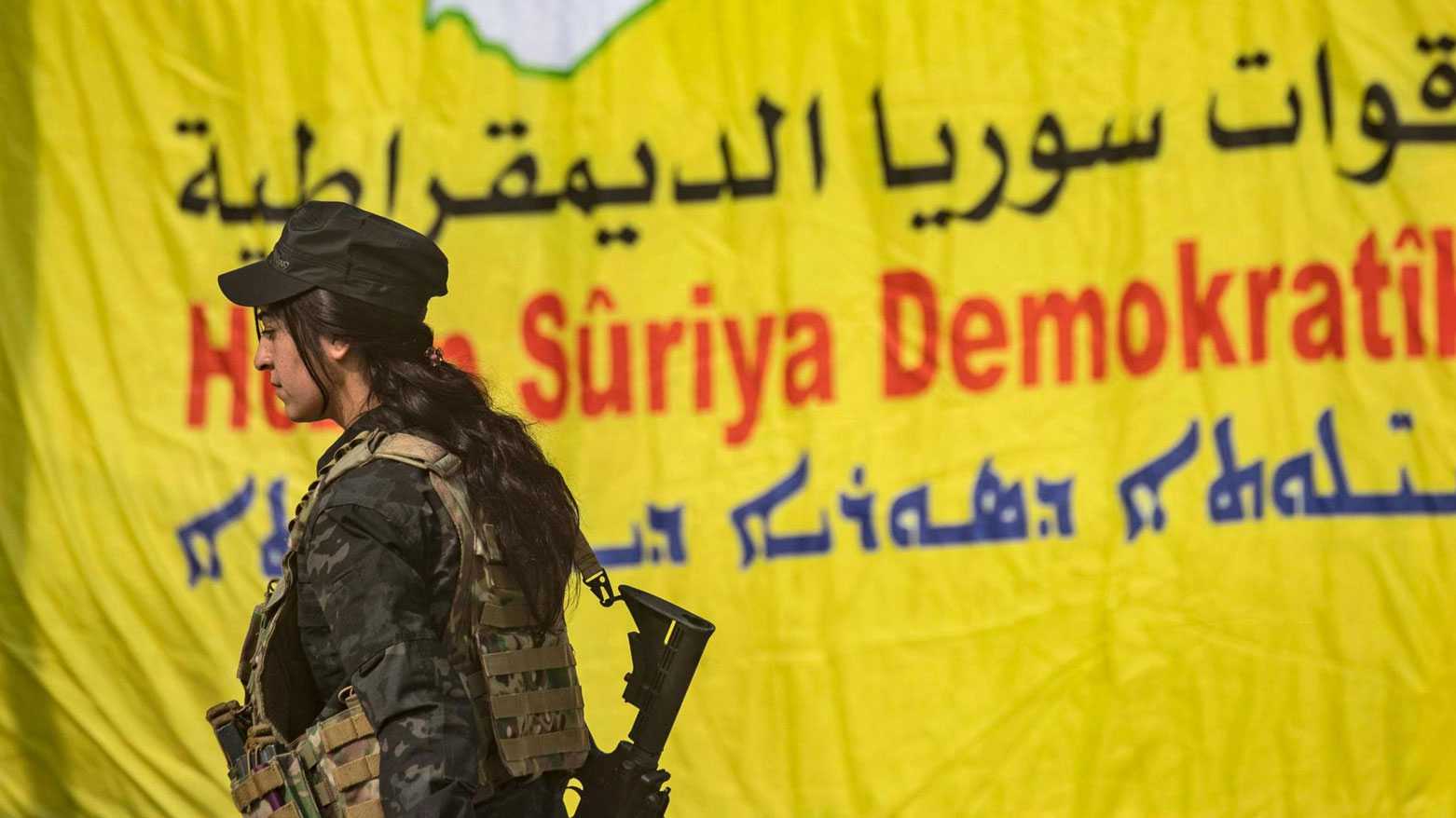Syrian Army, SDF Trade Blame After Deadly Incident Near Tishreen Dam
Syria's army accused the SDF of killing two soldiers near Tishreen Dam, while the SDF denied the claim, stating landmines caused the explosion. The incident triggered protests against the Kurds in Afrin and highlights ongoing tensions amid SDF integration talks with Damascus.

ERBIL (Kurdistan24) – The fragile calm between the Syrian government forces and the Syrian Democratic Forces (SDF) was shaken on Wednesday following reports that two Syrian soldiers were killed in an attack near the Tishreen Dam in northern Syria — an accusation the SDF has firmly rejected, saying the deaths were caused by landmine explosions rather than any deliberate strike.
In a statement released through the official Syrian news agency SANA, the Syrian Ministry of Defense claimed that SDF units had targeted one of its military positions with a guided missile, killing two soldiers and severely injuring a third.
“Units of the Syrian Democratic Forces targeted one of our army posts in the vicinity of the Tishreen Dam with a guided missile, leading to the martyrdom of two soldiers and the serious injury of another,” the ministry’s statement said, condemning what it described as a “renewed rejection of all previous understandings and agreements.”
The ministry accused the SDF of “striking agreements to the ground” and “continuing to attack Syrian army points and kill its personnel,” framing the incident as evidence of the SDF’s unwillingness to maintain stability in areas of shared control.
Shortly after SANA’s report, the SDF issued a categorical denial, rejecting the allegations and asserting that the explosion was caused by landmines planted near the government’s own outpost.
“These claims are completely false,” the SDF said in a statement shared with Kurdistan24. “Our forces did not carry out any attack in the mentioned area. Based on field data available to us, the incident resulted from the explosion of landmines near the Syrian government’s military point, and our forces had no connection to it.”
The SDF reiterated its commitment to de-escalation and to maintaining stability across frontlines, emphasizing ongoing national efforts to counter threats that endanger the safety of civilians of all ethnic and religious communities.
“We remain committed to the principle of non-escalation and preserving stability in contact zones,” the statement added, urging all media outlets to “verify information and rely on credible sources” to avoid fueling public tension or misinformation.
The dispute between the two sides quickly spilled into public unrest in Afrin, Northwest Syria (Western Kurdistan), the only Kurdish-majority city under the control of the Syrian Interim Government, where anti-Kurdish sentiment has repeatedly surfaced during any political or military disputes.
On Wednesday evening, dozens of Arab settlers gathered at the Maratê roundabout in central Afrin following the news of the two slain soldiers. According to video footage verified by Kurdistan24 and local sources, the arrival of one of the soldiers’ bodies in the city triggered heavy gunfire and angry demonstrations.
Eyewitnesses said the protesters issued threats to civil peace and demanded that interim president Ahmed al-Sharaa “not trust the Kurds,” calling on him to authorize reprisals. The demonstrators’ primary demand was for the SDF to hand over the individuals accused of launching the alleged missile attack — an accusation the SDF continues to deny.
The protests further highlight the volatile ethnic and political tensions in Afrin, where incidents involving the SDF or the Syrian government often escalate into racially charged hostility toward the Kurdish population.
This latest confrontation exposes once again the deep mistrust and instability defining relations between Damascus and the SDF. Despite multiple rounds of talks over possible military and administrative coordination, both sides continue to trade accusations over violations along shared frontlines in northern Syria.
Ongoing Efforts Toward Military Integration
The incident comes at a sensitive moment, as the SDF has submitted a list of 70 senior military commanders to the U.S.-led international coalition, in preparation for integration into Syria’s national army and defense institutions, according to North and East Syria Communication X page.
The list reportedly includes the names of officers expected to join the Syrian Army, Ministry of Defense, and the General Staff, as part of an emerging framework to merge SDF formations into the state’s military structure. It features commanders from three divisions based in al-Jazira, al-Furat, and Deir ez-Zor, along with three special brigades under General Staff command — one dedicated to counterterrorism operations in coordination with the international coalition.
According to North Press, a media outlet close to the SDF, 30 percent of the General Staff’s leadership positions could be allocated to SDF commanders, signaling increasing recognition of their role in shaping Syria’s future defense apparatus. A Western diplomatic source confirmed the submission of the list, expressing optimism that the integration process “will soon move from planning to implementation.”
While the Syrian Ministry of Defense seeks to frame the incident as deliberate aggression, the SDF’s insistence on de-escalation and commitment to political dialogue signals a broader desire to prevent renewed conflict — especially at a time when U.S.-mediated integration talks between the SDF and the Syrian army remain underway.
For now, the truth behind the Tishreen Dam incident remains contested. But the chain reaction it sparked — from military accusations to protests in Afrin — underscores the fragility of Syria’s internal peace and the persistent risk that local tensions could reignite broader hostilities.